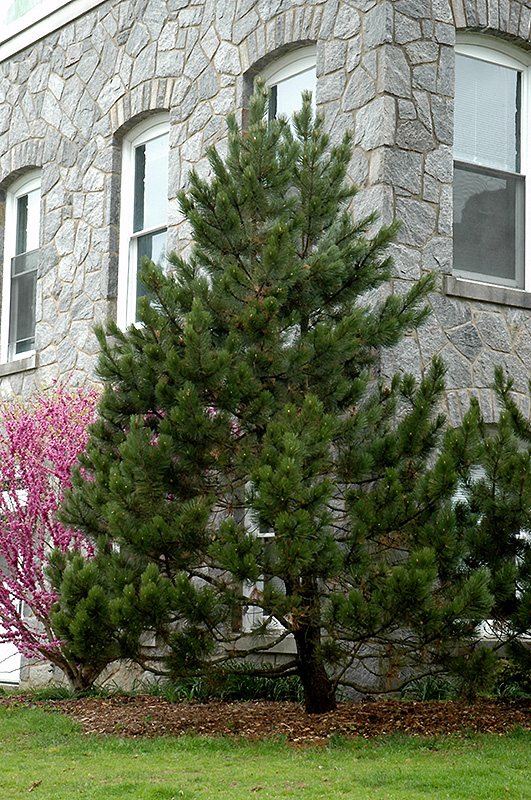>> Home
Height: 50 feet
Spread: 20 feet
Sunlight:
![]()
Hardiness Zone: 5
Other Names: syn. Pinus leucodermis
Description:
An upright, conical pine that grows very slowly and dense, making a perfect windbreak or screen; it is known for its excellent salt tolerance; great disease resistance; dislikes heat and humidity
Ornamental Features
Bosnian Pine is primarily valued in the landscape for its distinctively pyramidal habit of growth. It has attractive dark green evergreen foliage. The glossy needles are highly ornamental and remain dark green throughout the winter. The rough brown bark adds an interesting dimension to the landscape.
Landscape Attributes
Bosnian Pine is a dense multi-stemmed evergreen tree with a distinctive and refined pyramidal form. Its relatively fine texture sets it apart from other landscape plants with less refined foliage.
This is a relatively low maintenance tree. When pruning is necessary, it is recommended to only trim back the new growth of the current season, other than to remove any dieback. It has no significant negative characteristics.
Bosnian Pine is recommended for the following landscape applications;
- Accent
- Vertical Accent
- Hedges/Screening
- Windbreaks and Shelterbelts
Planting & Growing
Bosnian Pine will grow to be about 50 feet tall at maturity, with a spread of 20 feet. It has a low canopy with a typical clearance of 1 foot from the ground, and should not be planted underneath power lines. It grows at a slow rate, and under ideal conditions can be expected to live for 80 years or more.
This tree should only be grown in full sunlight. It is very adaptable to both dry and moist growing conditions, but will not tolerate any standing water. It may require supplemental watering during periods of drought or extended heat. It is not particular as to soil type, but has a definite preference for acidic soils, and is able to handle environmental salt. It is highly tolerant of urban pollution and will even thrive in inner city environments. This species is not originally from North America.
